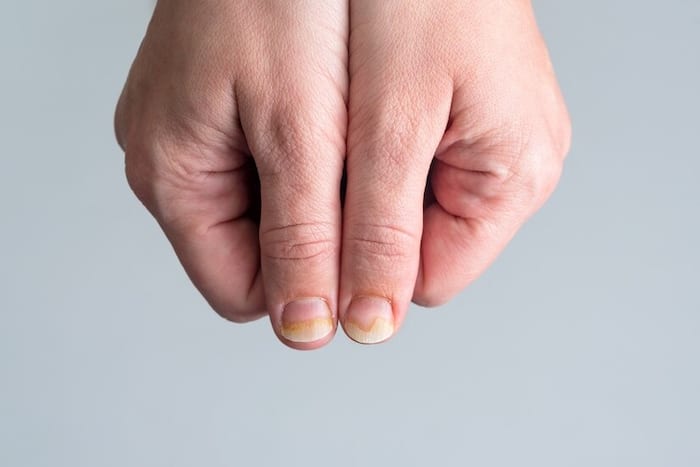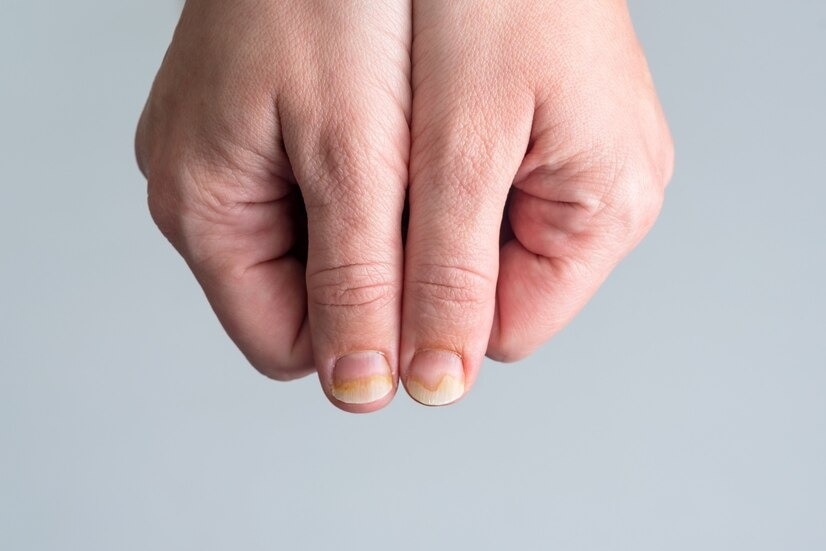Calcium deficiency can affect women’s health and cause several major symptoms that one needs to be aware of.

Calcium is a vital mineral. Your body uses it to build strong bones and teeth. Women need to increase their calcium intake earlier in life than men, starting in middle age. This is because when women experience menopause the requirement of calcium becomes necessary for them. During menopause, calcium intake becomes essential for women to reduce the risk of osteoporosis and calcium deficiency disease (hypocalcemia). According to a study, post-menopausal women, vegetarians, vegans and those with dairy intolerance are at a higher risk.
Most women who suffer from calcium deficiency are unaware of it. However, several usual symptoms may indicate this condition. Given below are 5 symptoms of calcium deficiency that can affect women’s health and well-being.
SIGNS AND SYMPTOMS OF CALCIUM DEFICIENCY IN WOMEN
- Brittle Nails: Are your nails constantly breaking or splitting? Brittle nails can be a sign of various deficiencies, including calcium deficiency. Calcium is essential for nail health, and when levels are low, nails can become weak and prone to damage.
- Muscle Spasms: Calcium is essential for muscle function, including relaxation and contraction. A deficiency can lead to involuntary muscle spasms, cramps and twitching. These spasms can occur in various muscle groups and be quite painful and disruptive.
- Toothache: 99% of calcium is present in your body and is stored in your bones and teeth. If your calcium levels drop, it is natural that you’ll be susceptible to toothache and decay. And also, you’ll be at greater risk of suffering from periodontal disease.
- Premenstrual Cramps: Women suffering from calcium deficiency have to go through a lot of pain during periods. According to studies, hypocalcemia may contribute to severe PMS symptoms. Also, calcium supplements can help control the symptoms.
- Fatigue: Feeling excessively low and tired, even after a good night’s sleep, could be a symptom of calcium deficiency. Calcium is involved in energy metabolism, and low levels may lead to feelings of fatigue and lethargy.

